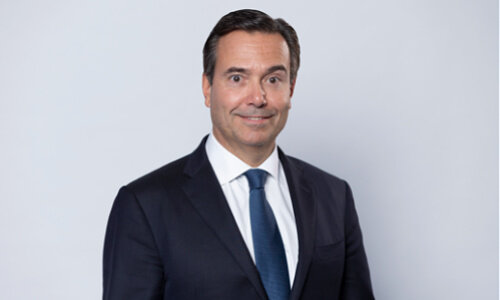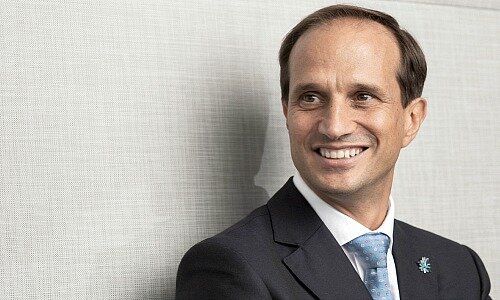The Swiss bank is poised to merge its business with wealthy clients into a single $927 billion juggernaut, finews.com has learned. Several insiders as well as a prominent former Credit Suisse banker are in the running to lead it.
Zurich-based Credit Suisse is deliberating bundling its main private bank unit with a Swiss-based business with the wealthy and a parallel one in Asia, two people familiar with the matter told finews.com.
The private bank represents one puzzle piece in a review of Credit Suisse’s wider strategy that Chairman António Horta Osório (pictured below) has pledged by year-end. The Swiss bank’s board is meeting this week and is expected to decide on the wealth management move, which may be disclosed as soon as third-quarter results on November 4.
Key Swiss Conundrum

Credit Suisse didn't comment on the plan, which would form a 853-billion Swiss franc ($927 billion) private bank. A key question in the deliberations is whether to include the Swiss business into a wider wealth operation and, if so, how to integrate it, one of the people said.
Switzerland’s domestic wealthy clients are currently the crown jewel of the so-called Swiss universal bank, or SUB, which also houses retail clients and a corporate business.
The wealth project is being spearheaded by Philipp Wehle (pictured below), who runs the largest wealth unit; Yves-Alain Sommerhalder, the influential head of a global trading solutions group; and Andre Helfenstein, Credit Suisse’s CEO in Switzerland. A chief of staff in the unit, Markus Klebermass, is also involved in the planning, a third person familiar with the matter told finews.com.

Leadership Quandary
The leadership is even trickier: a coterie of internal candidates are emerging, though none had been appointed at press time. They include Wehle, Sommerhalder, and Helfenstein themselves, potentially in a co-head structure. None of the three responded to requests for comment.
The most promising external candidate is Francesco De Ferrari (pictured below), a veteran Credit Suisse private banking executive who in 2018 defected to AMP, an ailing Australian wealth manager. De Ferrari, who was in the running in 2015 for the top Credit Suisse wealth job which ultimately went to Iqbal Khan, declined to comment.

Strategy About-Face
A private banking merger would reverse a 2015 strategy under ex-CEO Tidjane Thiam which split out Switzerland and Asia-Pacific as separately-managed regions. This favored local autonomy, particularly in the world's fastest-growing market for the wealthy – Asia. The region is also where several of its recent high-profile scandals have played out.
The wider review of Credit Suisse’s strategy follows an annus horribilis including a $10.1 billion Greensill fund implosion in March. Just weeks later, its investment banking unit swallowed more than $5 billion in losses from Archegos’ failure, requiring a quick cap hike.
Hammered By Regulators
Last week, Credit Suisse was hammered by U.S., British, and Swiss regulators over a Mozambique corruption scandal. The bank was also censured by its home regulator for spying on top executives including Khan, after he defected to UBS in 2019.
Credit Suisse's international wealth unit, where Wehle succeeded Khan, split from asset management in April after the Greensill problem surfaced publicly. The two divisions are nevertheless inextricably linked: the supply chain funds were primarily sold to wealthy private clients of Credit Suisse.
Claude Baumann contributed reporting




































